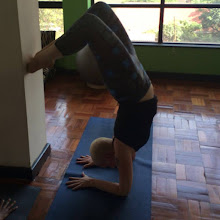More evidence if you ever needed any that Africa is a bizarre theme park for good intentions:
Told by CNN no less, and in its CNN Heroes section: The heartwarming tale of Derreck Kayongo, a Ugandan living in the US, who was shocked by the waste from hotel soaps – every visitor gets a new piece of soap, every day, and the barely used soap is being thrown out. "Are we really throwing away that much soap at the expense of other people who don't have anything? It just doesn't sound right. … My dad said people in America can afford to throw it away. But I just started to think, 'What if we took some of this soap and recycled it, made brand new soap from it and then sent it home to people who couldn't afford soap?'”
The CNN article cites statistics that every year, more than 2 million children die from diarrheal illness in developing countries. Simply washing hands with soap could be a first line of defence. Mr Kayango argues that the problem is not the availability of soap, but its cost: for people on the mythical dollar a day, a soap bar is simply too expensive to purchase when there are many more pressing priorities such as food and medication. Fair enough.
Mr Kayongo sets up what is now the Global Soap Project. Here’s CNN’s description:
“So far, 300 hotels nationwide have joined the collection effort, generating 100 tons of soap. Some participating hotels even donate high-end soaps such as Bvlgari, which retails up to $27 for a single bar. Volunteers across the U.S. collect the hotel soaps and ship them to the group's warehouse in Atlanta. On Saturdays, Atlanta volunteers assemble there to clean, reprocess and package the bars.
"We do not mix the soaps because they come with different pH systems, different characters, smells and colors," Kayongo said. "We sanitize them first, then heat them at very high temperatures, chill them and cut them into final bars. It's a very simple process, but a lot of work."
A batch of soap bars is only released for shipment once one of its samples has been tested for pathogens and deemed safe by a third-party laboratory. The Global Soap Project then works with partner organizations to ship and distribute the soap directly to people who need it -- for free.”
Rethink this for a second: The Global Soap Project requires managing the participating hotels and the collecting volunteers. The volunteers pay for shipping. The soap people need to buy machinery, pay for space, do lots of sorting-producing-heating-sanitising-testing type things ('a lot of work', as they say), pay for shipping ... to get soap to Uganda.
Here's the thing: Uganda has shops. Many. Even supermarket chains. Uganda also has soap manufacturers. When I lived in Uganda ten years ago, you were given those long soap bars for free at the petrol station if you purchased a certain minimum amount of petrol. I have heard of recent fuel and sugar shortages, but no soap shortages have hit the headlines.
If you think distributing free soap to Ugandans who can’t afford it is a good thing, then this is probably single-handedly the least efficient way of doing it. It is also latently ignorant and patronising: Send US rubbish to the ever grateful Ugandans.
How about sending some cash to Uganda to buy the soap there and then have it distributed by the local partner organisations?
Brains, people. Use them.
But heartwarming, hey?
Subscribe to:
Post Comments (Atom)




No comments:
Post a Comment